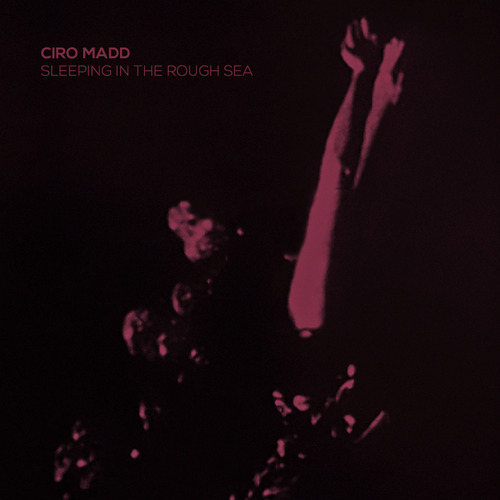Floating across the lo-fi haze and folk rock experimentation of Sleeping In the Rough Sea, the debut album from Brazilian artist Ciro Madd, is an acknowledgement that the wide-eyed attachment to 60’s music never really faded for some people. Granted, the album owes as much to psych-folk bands like The Incredible String Band and Forest as it does to Crosby, Stills, & Nash, and Jackson B Frank, but the album quickly and effortlessly steps among these hallowed sounds without feeling the least bit out of place. He even manages to sneak in some Nuggets-style garage rock for good measure. But the heart of the album lays on the Pacific coast, where more recent artists like Fleet Foxes and Blitzen Trapper have found inspiration. And so in Sao Paulo, one more follower of the Laurel Canyon-meets-British psych aesthetic carries on the good fight.
The list of relevant influences here is enormous, but if you were to say that Madd is simply rehashing the past, then not only are you missing the reverent tone of the album, you are also diminishing his own unique part in the genre’s continuing development. His borderline obsessive admiration for the music, as well as the resolute authenticity that seems to drive him to create, is as fully developed and approachable as on any record released in recent memory. Despite the occasional divergence into freak-out psychedelics, the album maintains a smooth transition between songs and feels as worn and comfortable as an old copy of Buffalo Springfield Again.
Even its lo-fidelity can’t hamper the genuine warmth and communal sense of association that Madd manages to wring from these familiar musical touchstones. Opening track “Long Time” shuffles around tracing the genetic line from Crosby, Stills, & Nash to Fleet Foxes with a minimum amount of effort. The simple melody and acoustic accompaniment paint it clearly in the mold of late 60’s, early 70’s folk rock but the fuzzed-out electric guitar that rushes in later in the song feels more indebted to the erratic free-folk stylings of The Incredible String Band. “Swallow That Dirt” mixes rural imagery with vocals that seem to be broadcast from inside a casket, buried six feet under. Though I can’t help but wish that the vocals were higher in the mix—my biggest complaint with the whole record actually.
But if you skip ahead to more recent reference points then you could do worse than bring Brooklyn-ites Woods into the conversation. Their lo-fi pop/rock is a spot-on match for some of the more ragged songs on Sleeping In the Rough Sea. In fact, much like the songs off Woods’ early releases, the songs that spread out haphazardly across this record feel similarly broken and seemingly prone to disintegrate with just a gentle push. And taken to extremes, such as on “Candy Song,” it becomes almost too fractured to readily appreciate. But then you have songs like “Strange Way Of Love,” which reminds me of a considerably lower-fi Magnetic Fields,” and dead-on 70’s rocker “Rainbow’s Fall”—replete with a slithering Byrds-ian guitar riff.
But the psychedelics are never far away as “Experiment” braces layers of distortion and subtle electronics against a restrained beat that just wants to be let loose and allowed to run wild. “Hold Down” seems to come at Madd’s influences a bit more lackadaisically, with the melody and lyrics seeming to spill loosely from his lips in a unhurried march from the speakers. But here he settles into a great groove and reminds you what we loved so much about that effortless pop from the 60’s and 70’s. The album ends on a meticulous little pop gem called “She’s Waiting For the Sunlight” that captures a radiance and fleeting excitement that was the calling card of so many bands from those decades. The sheer volume of ideas that are worked out and realized and then rejected, only to start again, is quite overwhelming and impressive on any album, more so considering that this is his debut.
So we go from Laurel Canyon to the British Isles and into the heart of modern indie music in about 50 minutes. And through it all, our guide has been a humbly impressive collection of songs that distort and fracture the pop template in surprising and intriguing ways. And while fidelity may be an issue for some, for others it’s merely a sign of a diehard DIY spirit. This album employs its influences without cannibalizing them—there is a real sense of holding fast to the spirit of the music to which he seems so irrevocably drawn. Underneath all the subverted musical reference points, Sleeping In the Rough Sea displays a maturity and an understanding of its own lineage. By allowing the music to flood outward unimpeded, rushing forth in an always changing shape, Madd has created one of the year’s most restless and promising debuts.

